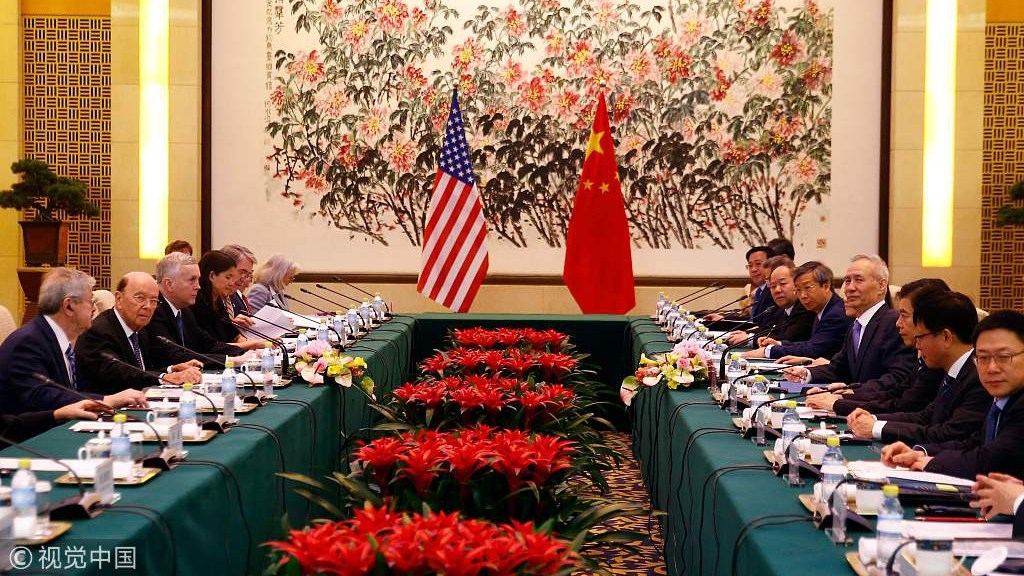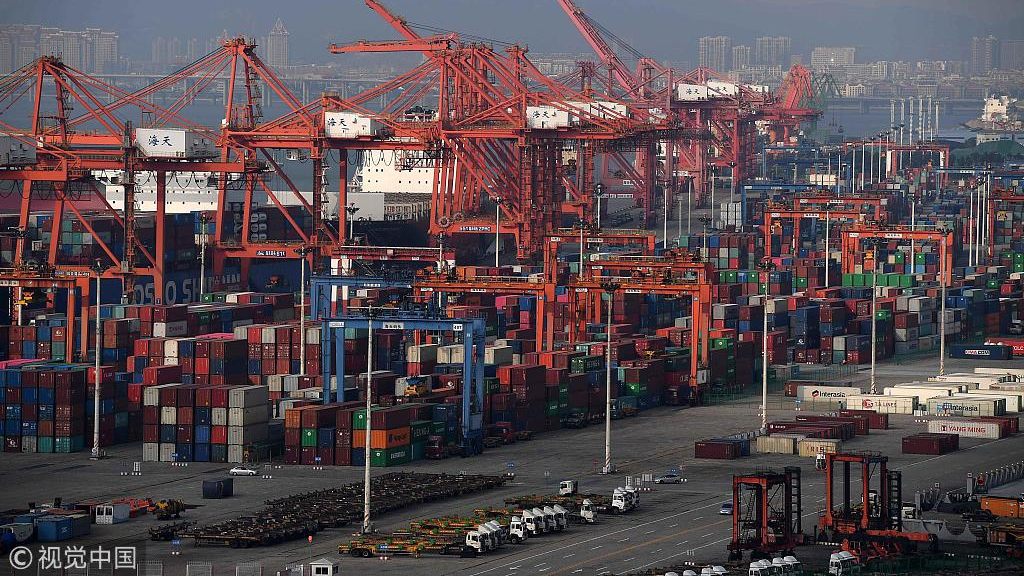
17:11, 11-Mar-2019
Full Episode –How to re-establish a real partnership between the US and China?
Updated
16:33, 25-Apr-2019

By Robert Lawrence Kuhn
China's "Two Sessions", or "Liǎng Huì"- the annual meetings of the Chinese People's Political Consultative Conference (CPPCC), the top political advisory body, and the National People's Congress (NPC), the top legislature, commence on March 3rd and 5th respectively.
There is a formidable domestic agenda, including President Xi Jinping's call for preventing and defusing major risks: political risks, economic risks, social risks, the list goes on... Yet, due to the timing of the March 1 deadline of a US-China trade deal, even though postponed, and a likely summit between President Xi and President Trump later in March, China-US relations is on everyone's mind.
Today, US-China friction comes at an inopportune time for China, when the country's annual GDP growth rate seems headed for its slowest in decades? And it's not just the trade war, which by all indications seems headed to resolution. US-China rivalry, many now believe, has become far broader and more entrenched, including geopolitical competition, science and technology competition, differing views on some key issues.
Must it be so? Can this course to conflict be reversed? Can China and the US find common ground, shared interests, so that both countries, and the world, can prosper? I address the question from New York and from Beijing.

The increment of Chinese economy in 2018 reached 1.4trillion USD./ VCG Photo
The increment of Chinese economy in 2018 reached 1.4trillion USD./ VCG Photo
Here's why I continue to be optimistic: President Xi and President Trump are both taking active leadership of the negotiations, with each leader making a personal commitment to resolving the dispute.
I do not think either leader would take a such public position, investing his political capital, without having high confidence of success. Both Presidents need a deal, though for different reasons — put simply, President Xi is fighting to mitigate risks; President Trump is planning an election fight.
A protracted trade war would disrupt their respective economies, undermine their respective fights. But here's what I fear. Even if the trade war is resolved, as expected, Sino-US relations will not return to where they were.
Too much has been rubbed raw; we are likely in for decades of flux, uncertainty and competition. This sub-optimizes for everyone. Global manufacturers are forced to diversify supply chains, increasing costs, decreasing quality.
I'd like to explore what it would take to re-establish — or, honestly, establish for a first time — a real partnership between the US and China. China calls for building "a global community with a shared future for all humanity" through win-win cooperation.
The big picture is that U.S.-China agreement would be "win-win-win"— "triple win" — win for China, win for the U.S., win for the peace and prosperity of the world.
SITEMAP
Copyright © 2018 CGTN. Beijing ICP prepared NO.16065310-3
Copyright © 2018 CGTN. Beijing ICP prepared NO.16065310-3